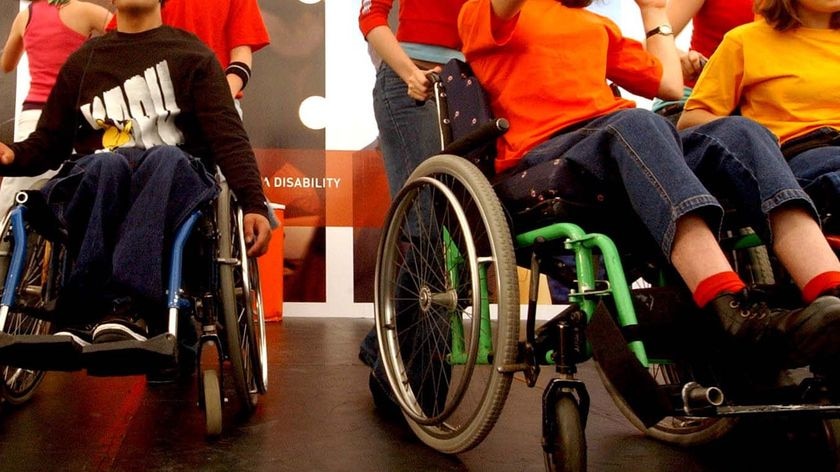When someone in Canada needs medical care that cannot be covered by their health insurance, they are often referred to as a disabled person. In addition to disabilities that prevent someone working, medical conditions or accidents can also cause them to be disabled. Although there are many types, some types of disability are easier to prove. The types of disability that fall under the Canadian Disability Act are broadly categorized as follows:
Types of Psychiatric Disorders
Physical Disabilities These types of disabilities must actually be affecting one's physical capabilities. Some examples of physical disabilities include: arthritis, diabetic neuropathy, cerebral palsy, multiple sclerosis, Parkinson's disease, blindness, deafness, partial deafness, and infertility. Mental/MC Disability - A mental disability is any psychological barrier that prevents one from living a normal life. Some examples of this type of disability include: schizophrenia, bipolar disorder, borderline personality disorder, post traumatic stress disorder, and seasonal affective disorder. Intellectual/Mental Disabilities - A mental impairment is any impairment that affects a person's ability in one area of life, such as language, arithmetic reading, writing, decision making and memory.
Types of Psychiatric Disorders
Social Interpersonal Functions – The ability to interact normally with others is called social functioning. It is the foundation for all other disabilities that fall within the social classification. Some examples include: autism, Asperger’s syndrome, and cerebral palsy. Cognitive Impairment – These are cognitive impairments that have a particular impact on a person’s ability to live a normal, functional life. Some examples of cognitive impairments include: attention deficit disorder, dyslexia, migraine headaches, Alzheimer’s, Parkinson’s, Down syndrome, and so on.
Types of Psychiatric Disorders
These four types of disability are broken Cranbourne NDIS into categories that are based on how common they are in the population. This will help you understand how people with disabilities will be affected by society. This problem is influenced by environmental factors. It is important to know that these four disabilities can be classified in more than just four ways.
Types of Psychiatric Disorders
Digestive – This disability refers to registered ndis provider problems. They can either be physical or psychological in nature. Digestive impairment occurs in the body structure. This could mean that there is poor blood flow, slow digestion, slow clotting, or an insufficient supply of nutrients to the intestines. Another way to look at it is to consider it from the point of view of self-care. People with digestive issues are often too busy to take care of themselves properly, which leads them to neglecting their own health condition.
Muscular or skeletal – This is one of the four major categories of disability groups. This impairment is usually found in the musculoskeletal systems. This can include conditions like myocardial ischemia, rheumatoid arthritis, and osteoporosis. There are many other conditions that can be found, including diabetes, hypertension, heart disease, cancer, diabetes, kidney disease and hypertension.
Mental – This is the second major category of disability. This refers to mental impairments that have been medically diagnosed. This could either be because of brain defects, traumatic experiences, or mental illnesses. Some examples of mental disorders are schizophrenia, bipolar disorder, depression, anxiety, psychosis, etc.
Disability is not limited to physical disabilities. There are two types of disability: mental and social. Understanding the difference between each type of impairment could help you assess the severity of your situation.
Intellectual disability can include communication, fine or large motor skills, memory and reasoning problems, as well as language impairment. There may also be physical limitations such as strokes, heart disease, cerebral palsy, arthritis, and other types of intellectual disability. Social disability includes those types of impairment that lead to extreme difficulty in living such as extreme poverty, discrimination in the workplace, and abuse. Physical disability includes those types of impairment that don’t involve the brain or those that are not related to the brain but affects the body directly.
Both mental and physical disabilities require different rehabilitation and treatment. It doesn’t matter if you have a disability. You should seek medical attention. To overcome the disability, you may need additional assistance for a longer duration. This could mean that you will need to take longer to recover from your disability. For those with psychiatric disabilities, extra support may be required for a longer time.
It can be difficult for people with disabilities to be independent. There are many people who have to face this challenge. Your disability doesn’t have to be a limitation on your ability to live life. Even if you have had to deal with a disability in the past, there are still many ways to live your life to the fullest. There are still ways to live your life to the fullest, no matter what type or severity of psychiatric disability.

